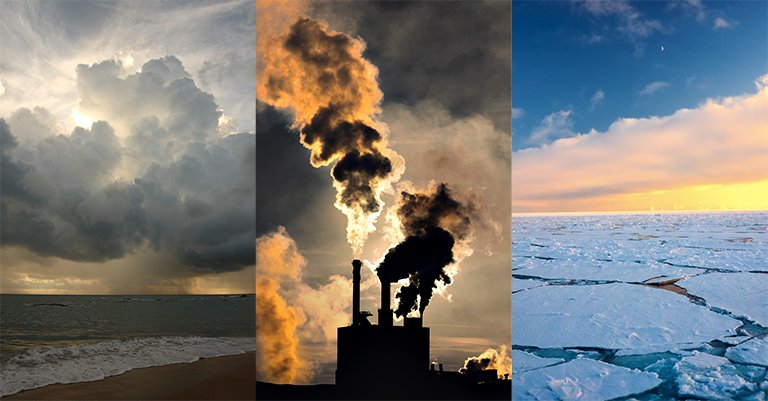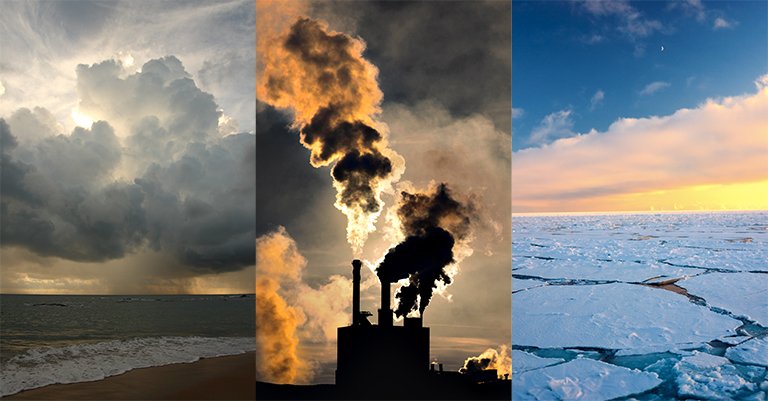
Global warming is the single toughest challenge our upcoming generation will face in their lifetime. There are no doubts to the fact that climate change will alter the way the world order carries on.
This looming crisis can either be diverted or allowed to swallow our way of life as it is. It’s up to us - the coming generation of age - in which direction the world swings. Short-lived climate pollutants, such as black carbon, methane, hydrofluorocarbons, and tropospheric ozone, are significant climate forcers with many times the global warming potential of carbon dioxide. These pollutants also have a considerable impact on air quality, food, water, and economic security for much of the world, both directly and indirectly through their harmful impacts on public health, agriculture, and ecosystems.
Delayed efforts to mitigate carbon dioxide or short-lived climate pollutant emissions, according to a report published by the Climate and Clean Air Coalition (CCAC), will have negative, and potentially irreversible, consequences for global warming, rising sea levels, food security, and public health. Reduced short-lived climate pollutants, which have a relatively short lifetime in the atmosphere spanning from a few days to a few decades, can help to quickly lower the rate of global temperature rise, complementing efforts to reduce carbon dioxide emissions and keeping warming below 2°C.
By 2030, the Climate and Clean Air Coalition's policies may reduce methane emissions by at least 40% and black carbon emissions by up to 70%, and by 2050, high-global warming potential hydrofluorocarbons could be practically eliminated (99.5%). (all compared to 2010 levels).
The research also highlights the several advantages of sustainable development: Warmer temperatures exacerbate public health issues such as heat-related illnesses, an increase in vector-borne infections, and a reduction in access to safe drinking water and food. Reduced emissions of short-lived climate pollutants can help to decrease global warming and reduce public health hazards.
Temperatures are rising, and posing a threat to food security. Food availability is being reduced due to an increase in pests and illnesses, as well as more frequent and harsh droughts and floods. Heat stress results in low yields or, in the worst-case scenario, crop collapse.
We have the best chance of limiting global temperature rise and reducing food security problems by reducing short-lived climate pollutants. Short-lived climatic pollutants have economic ramifications for human health, ecosystems, and agricultural productivity.
Reducing short-lived climate pollutants can result in immediate economic benefits such as increased household income and job creation, as well as long-term benefits such as enhanced public health, reduced poverty and inequality, and reduced climate change consequences.
The Constructor University Environmental Club meets on a regular basis to further examine these concerns. I recall attending a meeting where we discussed the ideals of sustainable development. Actions to reduce short-lived climate pollutants will have significant near-term benefits, such as improving human health and reducing vulnerability, driving economic growth and innovation, and combating near-term climate change, all of which will contribute to the achievement of the Sustainable Development Goals.
We need to understand that we live in a world and age where if we do not act now, it will be too late. Supporting this cause doesn’t cost anything except a little bit of ones time and ones conscious that has been sleeping for too long. The time to act is now. The Constructor University Environmental Club gives the same message.
If we do not take strict action against the toxic routine that has become a lifestyle for many of us, we will cease to exist. Little by little, we will lose the beautiful things this world has to offer and our children and our grandchildren will pay for this lifestyle with their lives, time, hobbies, and health.
BY MUHAMMAD SHAHZAIB TAHIR AWAN (PAKISTAN) | CLASS OF 2022
